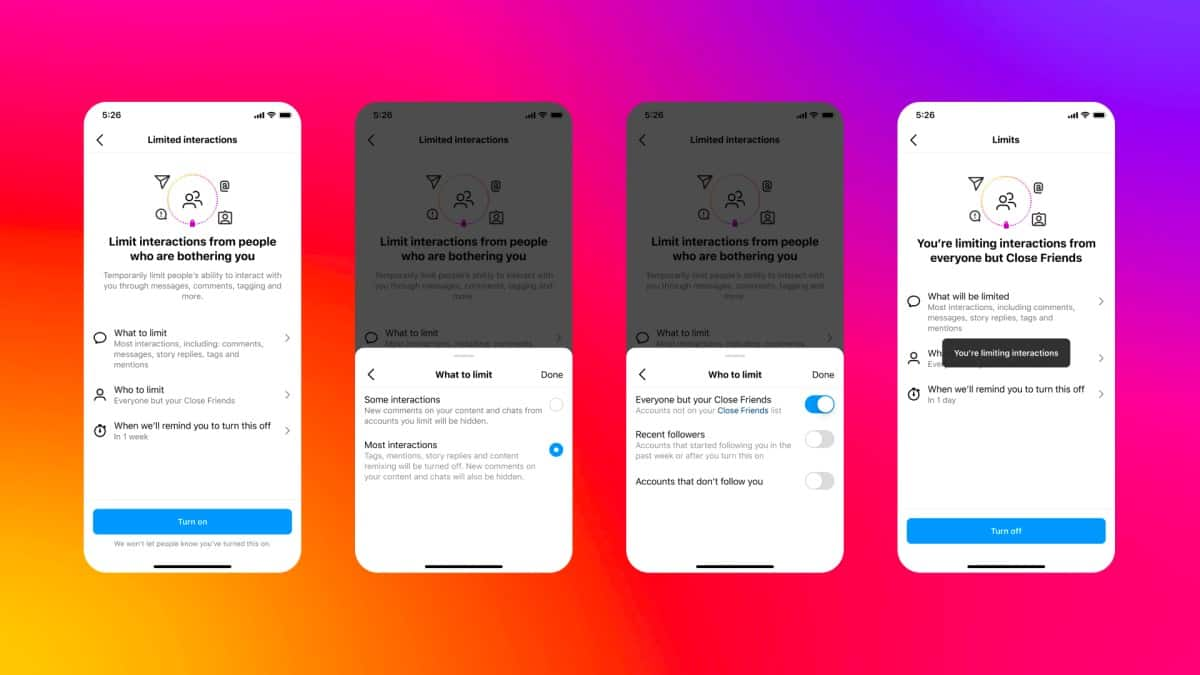
Instagram's 'Limits' tool protects teens from unwanted interactions and harassment
What's the story
Instagram is broadening the scope of its "Limits" tool, a feature designed to safeguard teenagers from potential harassment on the platform. This social media platform announced on Thursday that this enhanced function will enable teens to control undesired interactions. Once activated, adolescents will exclusively see comments, messages, story replies, tags, and mentions from their selected "Close Friends" group while interactions from other accounts will be muted. This upgrade aims to shield young users from potential bullying and harassment.
Tool evolution
Refining interaction control for teen users
The Limits tool was first introduced in 2021, as a response to the online harassment experienced by English footballers Bukayo Saka, Marcus Rashford, and Jadon Sancho. The tool was initially designed to limit interactions with individuals followed by the user and long-standing followers. However, the revamped version of the Limits tool now automatically assigns the "Close Friends" setting for teenagers. Accounts not included in a user's "Close Friends" group can still interact, but their activity won't appear in the feed.
Feature update
Instagram bolsters 'Restrict' feature, introduces new interaction rules
In addition to these changes, Instagram is enhancing its "Restrict" feature. This function allows users to limit interactions from specific accounts without having to block them. All comments from restricted accounts will be hidden and they will not be able to tag or mention the user. Earlier this year, Meta, Instagram's parent company, implemented new restrictions preventing anyone over 18 from messaging teenagers who don't follow them. In April, Instageram introduced a feature that blurs nudity in DMs for teens.
Rising pressure
Meta under scrutiny for teen safety, mental health concerns
The latest moves come as Meta faces increasing scrutiny over teen safety on its platforms. Last October, over 40 US states sued Meta over allegations that its product design negatively impacts children's mental health. Similarly, earlier this month, the European Union launched an investigation into Facebook and Instagram regarding their addictive design and potential harm to minors' mental health.